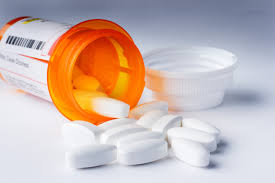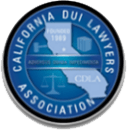
DRIVING ON PRESCRIBED MEDICATION AND THE RISK OF DUI ARREST
DRIVING ON PRESCRIBED MEDICATION
Since there are no per se levels for driving under the influence of prescribed medications, how is any patient to know what levels are safe and what levels are lawful? Most drugs that directly affect the central nervous system will carry warnings of the prescription bottles not to operate machinery while taking the drug or in some cases not to operate until you become accustomed to the effects of the drug. It is important to consult with your doctor to determine whether the medication you are taking and the doses that you are prescribed will affect your ability to safely drive.
Blood levels of drugs are measured in nanograms per milliliter of blood. Each drug has a therapeutic range, a toxic range and a fatal range. For drugs that affect the central nervous system, it is generally conceded that impairment exists for most people in the toxic range or above. Impairment in the therapeutic range is highly individualized and drug specific. Being in the therapeutic range for a drug like Ambien would mean that the drug was having it’s desired effect –sleepfulness; which would certainly be impairing for the purposes of driving. On the other hand, being within the therapeutic levels for an anti-anxiety medication may make the individual a better driver.
In a prosecution for DUI Drugs in California, a jury is instructed as follows:
“To prove that the defendant is guilty of this crime, the People must prove that the defendant drove a vehicle and when he drove, the defendant was under the influence of a drug.
A person is under the influence if, as a result of taking a drug, his or her mental or physical abilities are so impaired that he or she is no longer able to drive a vehicle with the caution of a sober person, using ordinary care, under similar circumstances.
The manner in which a person drives is not enough by itself to establish whether the person is or is not under the influence of a drug. However, it is a factor to be considered, in light of all the surrounding circumstances, in deciding whether the person was under the influence.
A drug is a substance or combination of substances, other than alcohol, that could so affect the nervous system, brain, or muscles of a person that it would appreciably impair his or her ability to drive as an ordinarily cautious person, in full possession of his or her faculties and using reasonable care, would drive under similar circumstances.
It is not a defense that the defendant was legally entitled to use the drug.
If the defendant was under the influence of drug, then it is not a defense that something else also impaired (his/her) ability to drive.”
Forensic evaluation of drug impairment from the raw results of a blood tests may be highly unreliable because of individual variances and the lack of scientific studies establishing baseline levels of impairment for all persons. Prosecutors therefore will often rely upon the unscientific opinion of a police officer to correlate an otherwise insignificant therapeutic level of a prescription drug found in a blood or urine sample to impairment. Courts should not allow this testimony from police officers who are not certified drug recognition experts nor should they allow such testimony from any police officer unless an adequate foundation has been presented to show that any drug recognition examination was done properly by someone who was properly trained. The value of such testimony even under the best of circumstances is highly questionable from a scientific standpo

PRESCRIPTION DRUG THERAPEUTIC RANGES
Carisoprodol (Soma)Up to 25 mcg/ml
Meprobamate10-to-30 mcg/ml
Codeine30-to-120 ng/ml
Hydrocodone (Vicodin)Up To 39 ng/ml Following 10 mg Oral Dose
Oxycodone18-to-27 ng/ml (Following Single 4.5 mg Dose)
Morphine10-to-70 ng/ml (Following Therapeutic Doses)
Lorezepam (Ativan)50-to-240 ng/ml
Diazepam (Valium)100-to-1000 ng/ml
Temazepam (Restoril)190-to-570 ng/ml (Between 2-to-5 Hours Post Dose)
Up to 30 ng/ml (At 24-Hours Post Dose)
Alprazolam (Xanax)10-to-50 ng/ml
If you have been charged with driving while under the influence of drugs or the combined influence of drugs and alcohol, you need the best defense possible. Call The Law Office of Barry T. Simons, he has over 40 years of experience in DUI Defense, is Board Certified and is the Author of “California Drunk Driving Law” 949-497-1729







